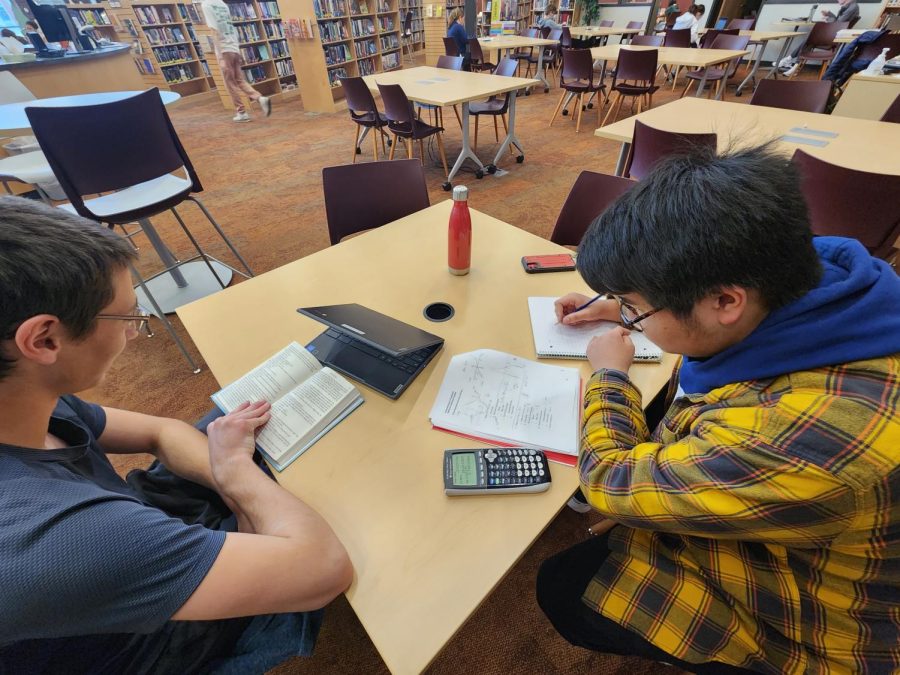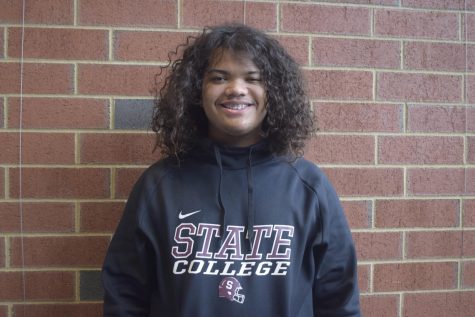Coping With Student Burnout
Two students working to complete their homework before the weekend.
March 27, 2023
As the year draws to a close, many students are grappling with frequent and high pressure tests: SATs, Keystones, AP tests, and more. Despite the many grueling hours of homework and studying, these times towards the end of the year are the most crucial times to stay focused and locked in, especially for the leaders here at State High.
Burnout is a buildup of stress that isn’t managed properly. For students in school, it leads to a desire for the summer and no more school, especially when the end is in sight. Students typically feel burnout because of all the hard work they give in the first two marking periods, resulting in no desire to continue. Burnout typically leads to lacking quality in work, less energy, and overall lack of productivity. A study conducted by the Association for Psychological Science found that, “Workplace burnout can alter neural circuits, ultimately causing a vicious cycle of neurological dysfunction.”
Student government’s Prithvi Narayanan spoke a bit on what a day typically looks like for him.
“I probably have figure skating or choir before school, and then I’ll come to school, I might have a meeting, I’ll go through my classes and have a club after school,” Narayanan said.
With all of the things that Narayanan does in a day, he’s most likely always busy; he always has an assignment to wrap up or a test to prepare for. Having that many things packed into a schedule doesn’t leave much free time in your day.
“[I have] maybe an hour and a half [of free time] each night,” Narayanan said.
With classes and meetings and other responsibilities stacking on top of each other, students are bound to be crushed under the weight of it all and feel the effects of burnout. It’s a lot of responsibility being in charge of the student government.
On top of all that, keystones are approaching. Juniors and seniors have to worry about the SATs around the corner. And, for advanced students, there are AP tests to prepare for.
The algebra, biology and english keystones are graduation requirements, according to act 158 of Pennsylvania law. Because there’s such a high value placed on these tests, students are pressured to pass and succeed on them. SAT’s have proven more overwhelming. One of the things that colleges pay close attention to are test scores, furthering the stress students feel to perform well on these exams. (However, due to the Covid-19 pandemic, some colleges have temporarily suspended these SAT score requirements). AP tests reward satisfactory scores with a smoother admissions process.
With the emphasis that teachers place on these end of year tests, they often linger in the minds of students. After they overcome that test, they have done the thing the whole course prepared them to do, leaving them with a sense of emptiness without that big goal in mind. Because of this, students won’t put in as much effort, and are bound to fall victim to burnout.
Senioritis is the idea of grades plummeting because of the end of high school approaching.
“I think senioritis is something that affects lots of people, especially as a senior now,” senior football player and Harvard commit, Stephen Scourtis said, “I see some of my classmates or friends just starting to feel like they’re tired of being in high school, or they’d rather do something else rather than being in class”.
On top of potential dream schools or sports related scholarships, students can just feel burnt out from being at the same school for so long. The same pods, classrooms, and lunches can become bland after some time, and students can feel the desire to get out.
It’s most crucial to keep one’s performance up at the end of the year so you’re able to perform on end-of-the-year exams, finals, or any other important assignments. If you stick with it in the short run, it will benefit you years down the road.


